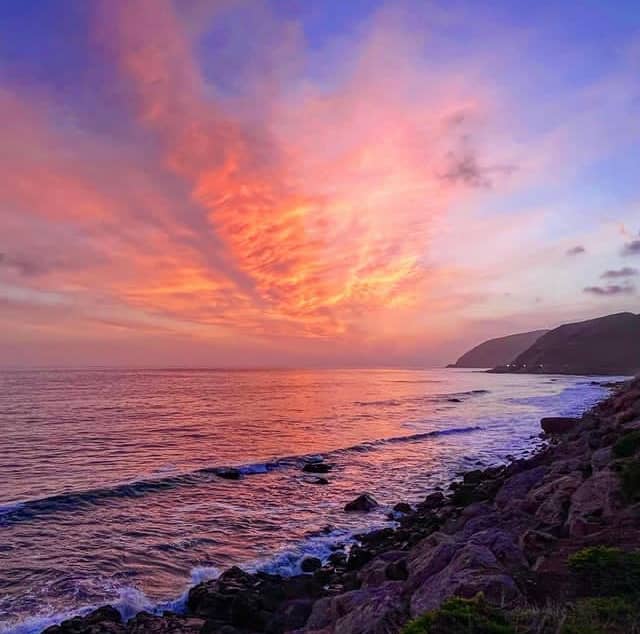When we think of the ocean, chances are we immediately reflect on its dramatic beauty. We may remember time spent on the beach, with sand or rocks beneath our feet, watching a brilliant sunrise or a sherbet sunset. Perhaps instead, we think of the calming sound of the ocean’s crashing waves or the refreshing sensation of its salty sea spray on a warm day.
It’s easy to also envision the marine life that calls the ocean their home—from the most magnificent whales and giant squid, to smaller creatures like lobsters and shrimp—they all play an important part in the ocean’s vast ecosystem, which provides us with over half of the oxygen we breathe.
What we likely forget (or at least choose not to recollect) is the massive presence of poison. That poison? Plastic.
In the approximate 60 seconds it’s taken you to read this far, it’s estimated that the equivalent of a garbage truck’s worth of plastic has been dumped into the ocean, if not much more …
This is not hyperbole—it’s fact, based on data from the Organisation for Economic Co-operation and Development. Every minute of every day, this happens on repeat.
If you find that statistic as disturbing as we do, we invite you to join us and take action to prevent further pollution during Plastic Free July … and indefinitely thereafter.
Dangers and Damage
So, what harm does all of this plastic actually do to the ocean, and our atmosphere? For starters, approximately 100,000 marine mammals are killed by the plastic in the ocean, whether they become tangled in its debris, choke to death mistaking it for food or ingest microplastics that have broken down, but will never biodegrade.
Those microplastics aren’t only found in the ocean, by the way, they enter our food chain and are released back out into the atmosphere. In fact, each week just by eating, drinking and breathing, each human is estimated to ingest the equivalent of a credit card’s worth of plastic.
In developing countries, anywhere from 400,000 – 1 million people also die annually from illnesses that are caused by toxic fumes and pollution generated by bad methods of handling waste (i.e. the burning of plastic).
A study conducted by the International Journal of Environmental Research and Public Health indicates that male fertility may be jeopardised by plastic pollution as well, because the chemicals used in plastic production, can disrupt hormones when they enter human tissue, after ingestion.
Products That Pollute
So, what exactly is responsible for all of this pollution? Products made from plastic that we often (sadly) use once and never think about again. Items like water and soda bottles, disposable grocery bags and takeaway food utensils. But they’re not the only culprits: Items with a longer shelf life are also harmful. These are our worn out clothes (if made with synthetic fabrics), select cosmetics and beauty products, detergents, shower curtains etc.
And the list goes on …
If you really want a wake-up call, carry a notepad with you for just one day and record each item you use, or even come in contact with, that is constructed from plastic. The results will likely shock you.
You may feel better about using plastic products if you recycle them, but truthfully only about 9% of all plastic gets recycled each year. The other 91% gets incinerated (producing those toxic fumes we mentioned previously), discarded in landfills or disposed of directly into nature.
Choose to Refuse
Solutions Over Silence
The plastic problem is so prevalent, that it’s not just environmentalists and scientists worried about its outcomes. Last month, 170 countries agreed to draft a global treaty to curb plastic pollution. The first draft is intended to be complete by November, with the final document in place by December of 2024. This is a great step in the right direction.
There are also wonderful organisations like The Ocean Cleanup and 4Ocean that take matters into their own hands to remove pollutants from the ocean and its beaches.
How to Help
Every action we take to fight plastic pollution equals progress. Here are just a few ways to make a lasting difference:
- Take the Plastic Free July Challenge and commit to healthier habits.
- Switch to sustainable shopping bags for your groceries, like our inexpensive, machine washable TWFF tote.
- Keep your old clothes out of landfills (and get credits for sustainable fashions in the process) with For Days, who is on a mission to start a circular revolution.
- Use alternatives for disposable plastic bags for food and travel.
- Take Eco-friendly Showers with bar soaps and shampoo bars instead of using liquids in bottles.
Becoming aware of how to adapt to a less-plastic lifestyle is half the battle. Making lifestyle changes to eliminate plastic pollution has true power.
When future generations are asked about what they think of when asked about the ocean, let’s make sure the first thing their minds conjure up are the same images of beauty that we see today …
Ocean Photo by Julian Lennon, 2022. View over 12,000 of his photos on Instagram, @julespicturepalace.



This is a great article! We should of banned plastic 50 yrs ago!
May the current generation do this and realize that there is no turning back! 👏🏼😘♥️🙏🏻🌎
Thank you for the encouragement. I will look, hear and smell dump trucks as a reminder to do more. When I purchase or receive I make a mental note where is it coming from and where will it go. I learned this living in the desert tundra.
All true
Thank you for all you do to support the environment.
Act locally helps globally … greed over need is destroying the planet earth; thank you for this article.